How Quickly It All Changes
Yesterday the snow pack was firm and fast with great grooming and a low, low wind chill at the top of Crackenback. Only locals on the slopes and all doing mach 10 on the frozen corduroy.
Of course all good things come to an end. I awoke this morning to very overcast skies and could see brown patches on the lower slopes. I initially thought that the groomers had just gone too far but as I rode the Kozi Express I could see that it had rained during the night. I had not heard it but it was obvious that a lot of rain had fallen and the thin base in the exposed and high traffic areas had taken a beating. I was still on my good boards but if I get out tomorrow I will probably be on the rock hoppers again. Not that I hit any rocks but the soft cover was trenching up. The winds were coming from everything between south west and south east and the air temperature was not low.
The snow was sticky and got stickier as the clouds burnt off. My pick was the racecourse - still in shade, very well groomed and no one using it.
A clear sky and drop in temps tonight will have the snow making back again to repair those thin spots. The next front is forecast for late on Friday. Don't get too depressed - it's still June and one of the best Junes in a while with top to bottom skiing & boarding still enjoyable.
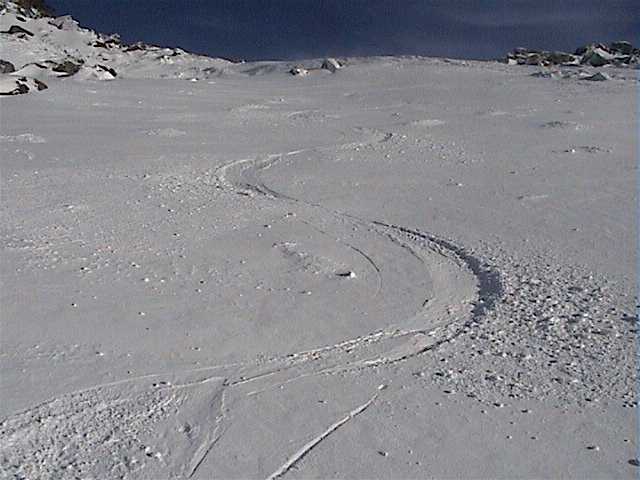
Monday morning - first tracks - Merritt's Falls below Eagle Way
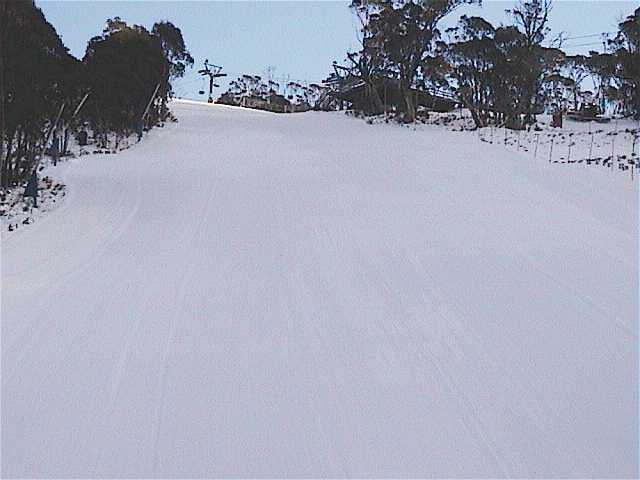
Beautiful corduroy around Bunny Walk station
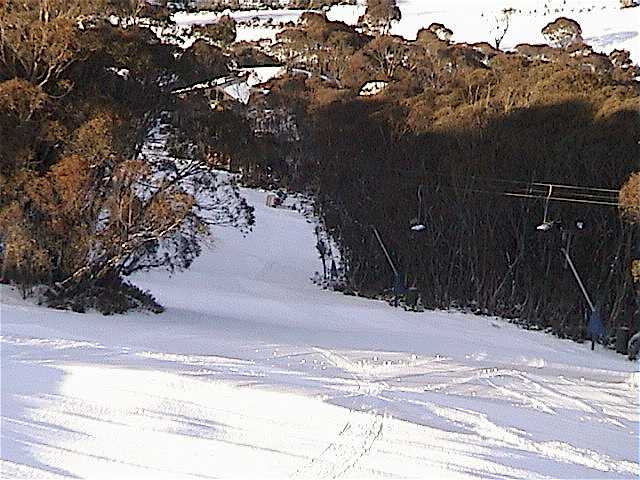
The Milk Run as yet untouched by board or ski
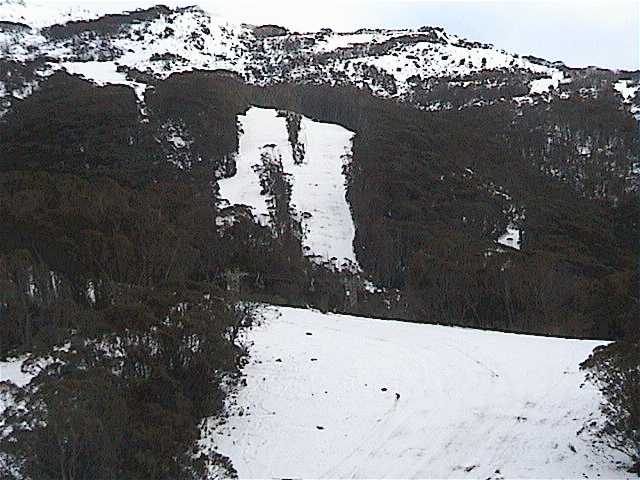
Tuesday morning - High Noon with brown stains
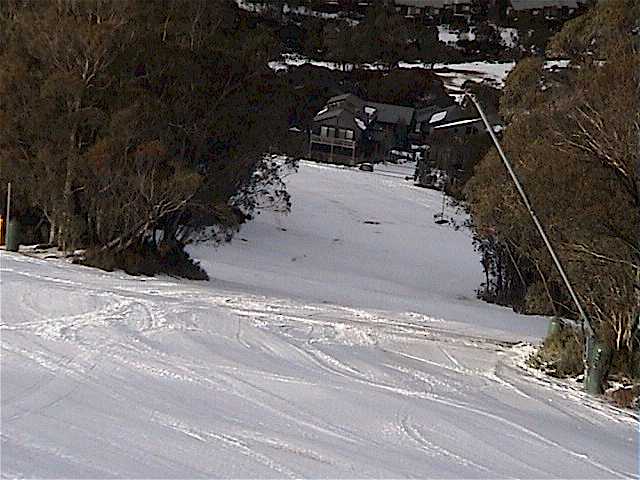
Milk Run trenching up in the soft snow conditions
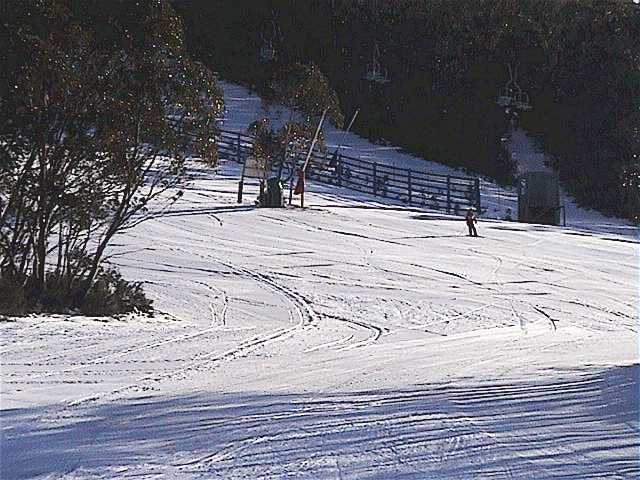
The bottom of the race course
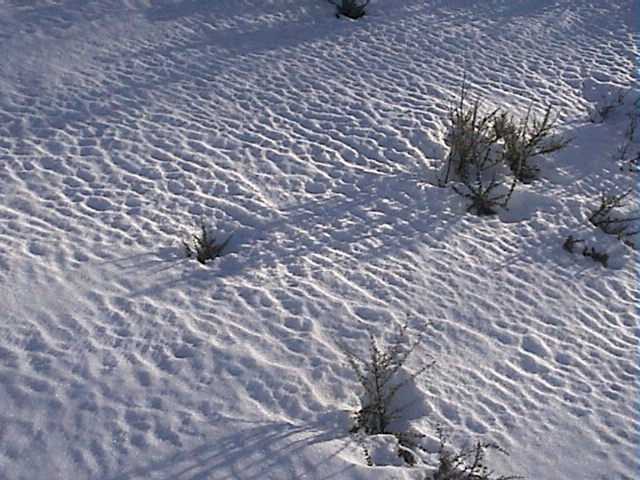
Rain pitted snow high up on the mountain
I would like to tell you about Rob's theory/prediction for season 2003. Rob who? I'm not telling, as that would violate my privacy clause. Rob has been reading up on how the introduction of the large lakes with the Snowy Mountains Scheme had supposedly raised ambient air temperatures by a whole degree but with water levels down due to the drought this effect has been minimised. The summer bushfires have destroyed millions if not billions of tons of heat producing compost and with a much reduced leaf canopy the snow on the ground (easy to see) has turned much of the region into a giant fridge. Together with the change in El Nino and the end to the drought bringing more moisture into the region the pre-chilling of this moisture should produce more snow than rain. Rob expects a season bigger than 1981 with a total base depth of around 4 metres. If he is right we will all have to buy him a beer. If he is wrong I might just expose who Rob is.
 Report - Tuesday, 17 June 2003 12:09:03 PM
Report - Tuesday, 17 June 2003 12:09:03 PM